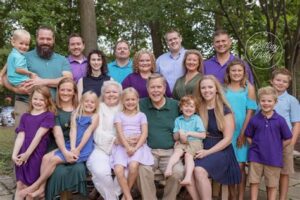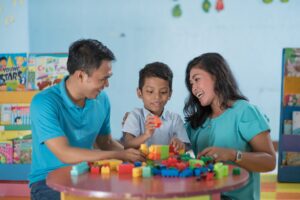Back to: Religion and National Value JSS 3
Welcome to class!
In today’s class, we’re going to be talking about the roles of extended family members in child development. I trust you will enjoy the class!
Roles of Extended Family Members in Child Development

- Procreation Role:
– The extended family initiates the process of procreation by supporting parents-to-be in marriage.
– They play a vital role in ensuring that the child’s parents are united in marriage, which forms the foundation for the child’s upbringing.
- Socialization Role:
– Extended family members act as agents of socialization, teaching children how to interact with elders, younger family members, and peers.
– Through storytelling, cultural practices, and shared experiences, children learn about their heritage and community values.
- Provision of Basic Needs:
– Extended family members contribute to meeting the child’s basic needs, such as providing food, clothing, and other essentials.
– Their support ensures that the child grows up in a nurturing environment.
- Moral and Emotional Role:

– Extended family members serve as role models, imparting moral values and emotional guidance.
– Children learn empathy, kindness, and respect by observing how their extended family members treat one another.
- Adaptation to Larger Society:
– Interaction with extended family members exposes children to diverse perspectives and social norms.
– They learn how to navigate relationships beyond their immediate family, preparing them for interactions in the broader society.
Examples:
- Grandparents:
– Grandparents share family stories, traditions, and wisdom with grandchildren.
– They provide emotional support and a sense of continuity.
- Aunts and Uncles:
– Aunts and uncles offer guidance, mentorship, and practical advice.
– They may teach skills like cooking, gardening, or playing musical instruments.
- Cousins:
– Cousins provide companionship and playmates.
– They help children learn cooperation, negotiation, and conflict resolution.
- Nieces and Nephews:
– Older nieces and nephews can be positive role models for younger ones.
– They foster a sense of family unity and shared experiences.
Remember, the extended family plays a crucial role in shaping a child’s character, values, and understanding of community.
We have come to the end of today’s class. I hope you enjoyed the class!
In the next class, we shall be discussing types of extended family members.
In case you require further assistance or have any questions, feel free to ask in the comment section below, and trust us to respond as soon as possible. Cheers!

can we do it for free
I loved the course